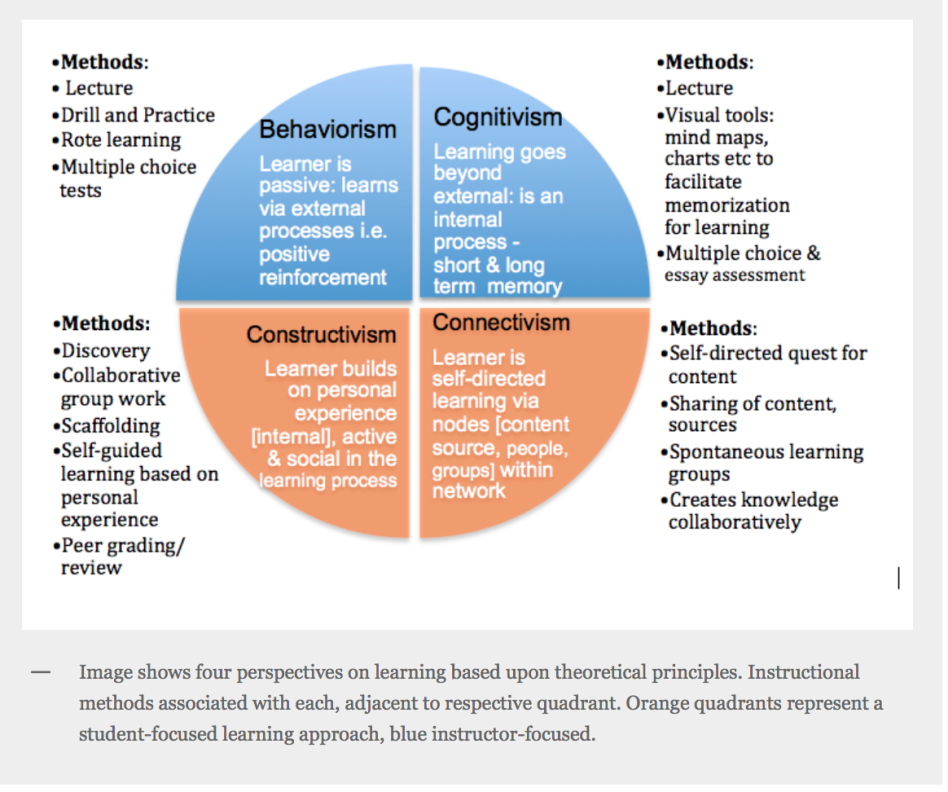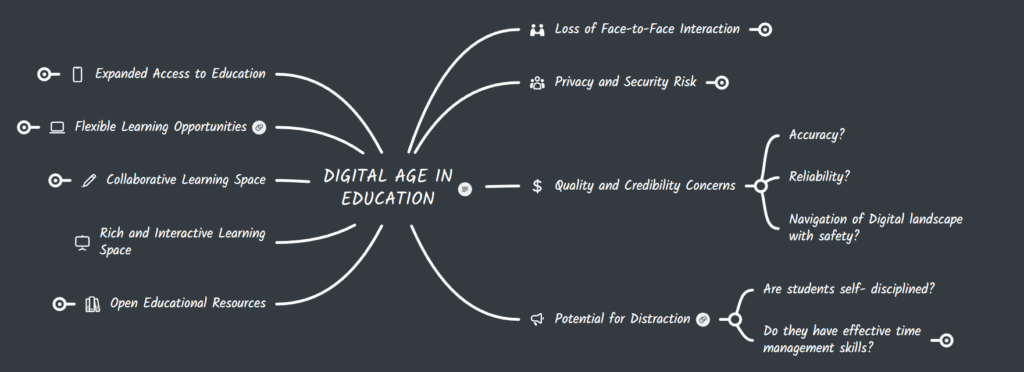Reading Chapter 2 of Tony Bate’s book Teaching in the Digital Age made me think about my worldview of truth i.e., my epistemological stance about the nature of knowledge. How did I know what I know? What are my implicit beliefs about the nature of knowledge as an educator?
Even prior to delving into this chapter, I had already acknowledged within myself that I have long embraced constructivism (Carl Rogers, 1969) as a cornerstone of my teaching career. It aligns most harmoniously with the way I validate my teaching methodologies and the knowledge that shapes my personal “truth.” Thinking about my teaching pedagogy which was largely shaped by teaching approaches that involved inquiry-based learning, problem-solving, collaborative learning, Scaffolding, thinking about thinking (metacognition), and guided practice for the most part, I started exploring what Bates had to say about the nature of knowledge and its implications for teaching.
However, as I progressed with the reading, I quickly found myself questioning my truth. A doubt emerged, maybe effective instruction is actually practicing a combination of instructional approaches that are tailored to the need of the students and the demands of the classroom dynamics.
I thought about my approach to promoting positive behavior in the classroom, which includes utilizing praise and rewards as a means of reinforcement, collaboratively establishing classroom rules with students on the first day of class, and facilitating weekly group projects where clear instructions are provided and individual roles and responsibilities are assigned by me. Clearly, I am not training any pigeons like Skinner (1968) did, but this part of my teaching-learning discourse does incorporate the principles of behaviorism.
Next, I contemplated the utilization of graphic organizers and KWL charts during our collaborative story-writing sessions, the engaging concept mapping and discussions as pre-reading activities, and the occasional implementation of mnemonic techniques as memory aids. It became apparent to me that placing emphasis on mental processes such as information processing, problem-solving, and memory retention is indeed an integral aspect of my ESL teaching methodology and a cognitivist approach that Bate describes as “teaching learners how to learn, on developing stronger or new mental processes for future learning, and on developing deeper and constantly changing understanding of concepts and ideas” (p. 58).
Following that, I considered the valuable contributions of my learners from diverse backgrounds, whose varied experiences enriched the classroom discussions and led to distinct approaches to meaning-making. Nonetheless, I acknowledge that fostering a collaborative and cooperative environment undoubtedly facilitates the development of cultural understanding, thereby empowering learners to establish robust PLNs within their learning space. Forming these connections definitely lends to expanding and leveraging the power of technology, networks, and online resources to improve and develop their language learning and life-long learner capacities in an interconnected digital realm.

Apart from realizing my amalgamation of instructional approaches, my big takeaway from this chapter was realizing that knowledge is no longer static and this shift is because knowledge is ever-evolving and in a technology-driven world, it is being generated at a rapid pace. Furthermore, Academic knowledge is no longer the sole form of knowledge of significance in the world of academia, and as teachers, we must encourage our students to explore and appreciate other forms of knowledge that lie beyond the academic.
Just like my teaching philosophy, knowledge is “not a pure, objective concept, but driven by different values and beliefs about the nature of knowledge” (p.76).
REFERENCES
Bates, A. (2015). The nature of knowledge and the implications of teaching. Teaching in a Digital Age, 1(3). http://dergipark.ulakbim.gov.tr/glokalde/article/view/5000135229

Hello Tanya, Thank you for sharing your experience about how you had to modify your plan, changing in from a…
Hello Tanya, Thank you for sharing your different learning experiences. I can relate to the sentence you wrote whereby the…
Hi Tanya! Thanks for sharing that fantastic video. It was really deep, and I enjoyed watching it. What I loved…
Hey Noah, Thank you for your comment! I often times rely on digital pedagogy in my ESL classroom. I can…
Hi Tanya, I love the activities that you provided to go along with your video, very creative! I think that…